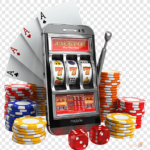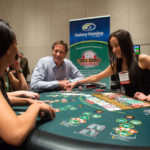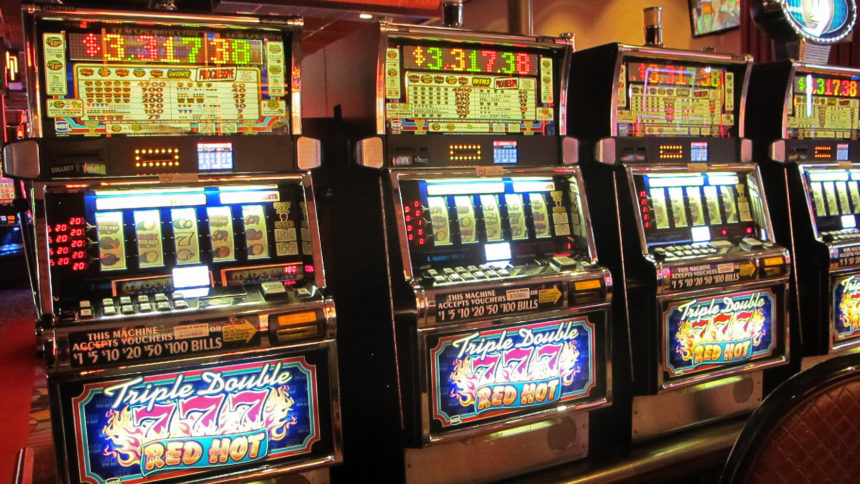Where We Were
Charles Fey invented the slot machine in the 1890s. He certainly didn’t anticipate that his creation, which he named”Liberty Bell, “Liberty Bell” would evolve into the most popular type of gambling in casinos today.
However, the development of slot machines caused several difficulties, as many within the United States viewed gambling as socially unjust. In 1910, the entire legal gambling industry was banned, leaving horse racing as America’s sole legal form of entertainment.
In the 1920s, during the prohibition era, the public’s desire for gambling was similar to that of alcohol. The machines, along with alcohol, were prevalent inside “Speak Easy’s” throughout America, which Organized Crime often ran. Following the end of prohibition, underground casinos were still operating.
States began cracking down on illegal casinos and began confiscating and eliminating gambling equipment, including slot machines. Mayor LaGuardia of New York City described them as “mechanical pick pockets,” destroying them using the hammer of a sled and dumping them into Long Island Sound. (You can view the whole thing via YouTube.)
In 1931 Nevada legalized gambling. Slot machines were everywhere in the state’s casinos, but they were there only to entertain women and mistresses playing with their penny and nickles while the gamblers were gambling at the table. (A depiction of this is shown in the film of 1952, “The Las Vegas Story,” featuring Vincent Price, Victor Mature, and Jane Russel.) Slots were a “ladies” game until Atlantic City was able to legalize gambling in 1978.
Bally Manufacturing invented a unit powered by electricity, and the slots started to “light up” and produce different sound effects. With the introduction of multi-coin accepting machines, the new dollar machines brought bigger jackpots for players. The Random Number Generator was invented, and top prize amounts could be increased for four and five-reel engines. Spin buttons were introduced as an alternative to the handles.
The Indian Gaming Act was passed in the 80s, which allowed casinos on reservations and dockside riverboats that were newly legislated. Gambling attracted slot players from all over the world as racetracks offered one-arm bandits.
IGT created Megabucks in 1986. Slots were then linked across Nevada through phone lines. Megabucks offered the chance to win a huge lottery-sized jackpot that increased with each dollar wagered. In 1986, the Progressive Jackpot was born, and gamblers could soon become millionaires. The players began to abandon table games and flocked to the machines, and casinos reacted with aplomb.
Where We Are
The growth of slot machines has led to the development of new technologies. The online slot with 25 lines with a maximum bet of 10 credits per line is permitted for a ticket in ticket out (TITO) technique. The handles and coins were shaped like dinosaurs. Operators can now reduce denominations as low as a penny and still earn profits.
In the 21st century, slot producers quickly pushed for themed slots, units based on popular TV shows, films, and entertainers. The players could play on the Wheel of Fortune, giggle at Curley, Larry, and Moe and take a trip on the Starship Enterprise with Captain Kirk, or croon over Ol Blue Eyes. The games all feature videos from your favorite shows.
The slot machines have been redesigned to five video reels with the possibility of 40 or more lines. Chairs are comfortable with high backs and vibrate when certain bonus features are activated. Touch screens feature the most recent LCD technology as well as 3D graphics and Bose audio systems as they continue to develop. Based on the game’s theme, the players can bet just 1 penny(credit) for each line, up to $3, $2, and the maximum of $4. Bonus features can pay out huge amounts, and progressive jackpots can reach seven and six figures.
Newer games introduced the likes of CSI, Sex and the City, Iron man, Michael Jackson, David Copperfield, The Walking Dead, Back to the Future, Jurassic Park, Wonder Woman, Ellen, Let’s Make a Deal, The Godfather, Monopoly, and the list goes on.
Where We’re Going
The theme-based slot is bound to increase. But there’s a large portion of players seeking something new. They’re people who belong to the Millennials. Born in the 1980s and into the end of the 1990s, they played video games as kids. Casinos noticed that this generation needed to be more content to sit at an automated machine that does everything for them to make a profit. They want to be part of the process to see it happen. This has led to the creation of the G Ames of Skillet, the 2016 Global Gaming Expo in Las Vegas.
Two businesses, GameCo and Gamblit, Gamingintroduced their products at the expo, and according to all reports, the prospects are very bright. Others, Konami and Scientific Games เว็บสล็อต pg เว็บตรง, are creating their versions of the game to appeal to Gen Y’s. Other companies are likely to follow.
Certain games are based on poker. The players make use of their skills to take the cards they require. In another, players need to hunt for rare treasures inside Egypt’s Secret Temple before time runs out.
It’s still too early to determine whether the skill component will work. However, some games are currently in operation in Vegas and Atlantic City. The only way to know is time.
The American Gaming Association reported 832,988 slots in 1151 casinos in 44 states. There are more coming soon. It begs the question, what, with more than 50 million people visiting casinos each year, can the excitement of slots last?






